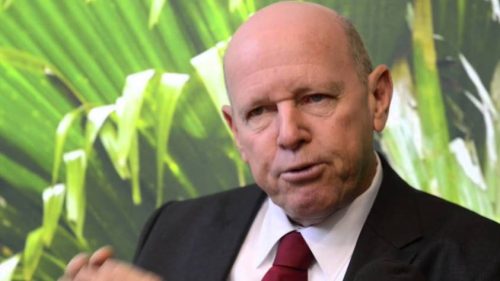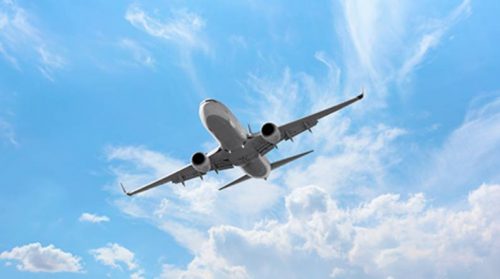London, United Kingdom, December 9, 2020 / TRAVELINDEX / The World Travel & Tourism Council (WTTC), which represents the global Travel & Tourism private sector, today unveils a major new report that recommends global guidelines for a Safe & Seamless Traveller Journey related to traveller identity and security in the ‘new normal’.
• Read all the latest WTTC News and Press Releases here.
Developed in partnership with Oliver Wyman Consulting Group, and Pangiam as one of the advisors, the report emphasises the need for swift action for a harmonised approach in the implementation of digital traveller identity and biometrics, and the enablement of strong policies through the undertaking of several activities to support the recovery of the ailing Travel & Tourism sector.
WTTC’s Safe & Seamless Traveller Journey (SSTJ), a core initiative, aims to enable a seamless, safe and secure end-to-end traveller journey, encompassing both air and non-air travel, through an approach for systematic biometric verified identification at each stage of the journey, replacing manual verifications.
SSTJ will be critical in combating COVID-19 and beyond for crises preparedness, and will further speed the recovery and bring relief and peace of mind to the 330 million people around the world who depend on a thriving Travel & Tourism sector.
The importance of SSTJ was also recognised by the G20 at the recent Ministerial meeting, with all countries giving it their full support and commitment.
WTTC had previously recognised the need for more contactless and integrated technology as an emerging trend in the new face of travel. COVID-19 has become a catalyst for touchless technologies, which travellers will now expect in order to minimise their physical contact with people and surfaces.
According to a recent survey by Amadeus, technology and innovation will be key in building traveller confidence and industry recovery. This is illustrated as over four in five (84%) travellers say technology would increase their confidence to travel in the next 12 months.
Furthermore, in a recent WTTC consumer survey, eight out of 10 Americans boarding domestic or international flights said they would be willing to submit biometric data to enhance their travel experience.
Building on consultations with more than 350 stakeholders since 2018, WTTC has developed a clear vision for a seamless and secure end to-end journey and has defined a roadmap to drive this initiative forward. Such an initiative requires the public and private sectors to join forces to drive the changes WTTC envisions, build momentum, and encourage adherence to global standards that sustain a supportive policy framework.
The report emphasises the need for international coordination to remove travel barriers and build traveller confidence, both of which are critical to the sector’s survival.
To achieve recovery, it is essential to provide certainty for travellers regarding travel restrictions and policies to facilitate domestic and international travel.
WTTC Members, other private sector leaders and international organisations identified the following private sector actions:
- Adopting global data standards, leveraging existing standards, to ensure interoperability across all sectors, including governments
- Cross sector collaboration (e.g. airlines, hotels, rail, cruise, working together)
- Implement standardised global health and safety protocols across all industries and geographies to facilitate a consistent and safe travel experience
- Develop and adopt innovative digital technologies that enable seamless travel, better manage visitor flows, and improve the traveller experience while making the traveller journey safer.
Public-private collaboration is essential to the success of SSTJ. WTTC developed critical steps governments must take to strengthening international collaboration through facilitation and leadership. Governments, through the creation of task forces, should continue investing in biometrics to ensure they are prepared for future crisis. Becoming more resilient will allow the sector and countries respond better to future risks or shocks.
Gloria Guevara, WTTC President & CEO, said: “WTTC’s new report comes at a time when Travel & Tourism is struggling to stay afloat. We believe that the Safe & Seamless Traveller Journey will not only be paramount in aiding a swift recovery to the sector, but also in shaping the new normal of Travel & Tourism for years to come. This important initiative enables mobility and increases safety and security, while always putting the passenger at the very centre.
“WTTC congratulates ICAO for endorsing the specifications of the Digital Travel Credential (DTC) Type 1, bringing digital identity-based travel one step closer to reality.
“There is no doubt that international coordination is necessary, which is why our guidelines aim to bring clarity to a recovery process that has been disjointed and confused. We hope that this, along with our many other guidelines for Safe Travels, will help usher in further consumer confidence.”
• Read all the latest WTTC News and Press Releases here.
Sean Donohue, CEO Dallas Fort Worth International Airport said: “DFW Airport is committed to ensuring it is ‘Clean. Safe. Ready.” for everyone coming to our facilities. Providing that seamless, enhanced experience means innovative efforts to expand the use of biometric technology, smart restrooms that provide contactless service and heightened sanitization, and going the extra mile to become the first airport in the world to earn Star accreditation from the Global Biorisk Advisory Council (GBAC).
“Our efforts align with the WTTC’s coordinated efforts and commitment to a seamless, safe and secure end-to-end journey for everyone.”
Dr. Dee K. Waddell, IBM Global Managing Director Travel & Transportation said: “IBM is proud to be a proactive contributor to the Safe and Seamless Traveller Journey global initiative. Digital travel credentials such as identity, biometrics, and health certifications are a critical part of transforming and emerging even stronger from the devastating impacts from the pandemic. Travel & Tourism is a resilient sector and ensuring a rapid return to growth will be enabled by next-generation technologies.”
Pierfrancesco Vago, Executive Chairman MSC Cruises said: “MSC Cruises greatly welcomes this Safe and Seamless Traveller Journey initiative from WTTC. Leveraging technology to improve the movement of guests through the various stages of travel will make our industry more efficient, more secure, and more adaptable. Use of this type of technology will enhance the guest experience at MSC Cruises and enhance our operations. Where both things can be done simultaneously, that is a winning combination.
“We appreciate that WTTC has undertaken this project for the collective benefit of the travel community.”
Kim Day, CEO Denver International Airport said: “Clearly this pandemic has influenced the way we travel today and in the future. Limiting contact through technology and other changes to allow for a more efficient travel experience are more critical than ever. This report offers several recommendations for a safer, seamless journey. Biometric technology and digital identity solutions are a key part of the travel industry’s recovery and future.”
Kevin McAleenan, Chief Executive Officer of Pangiam said: “The travel and tourism industry is currently facing an unprecedented challenge in restoring traveller confidence and maintaining its commitment to safety amidst a pandemic. WTTC’s report brings together the best practices from across the globe that demonstrate the value of robust investments in seamless travel and the benefits from security to facilitation to passenger experience.”
Scot Hornick, Oliver Wyman Partner Transportation and Travel said: “WTTC’s Safe and Seamless Traveller Journey represents a unique opportunity for the travel industry to use biometric and digital identity technology to not only assist in the industry’s recovery from COVID-19, but break the silos which have historically existed across travel sectors.
“Allowing a traveller to use their biometrics and digital identity across all travel providers, regardless of sector, will reduce many common friction points. For travel providers, the Safe and Seamless Traveller Journey will enable increases in efficiency and allow for a greater personalized customer experience. Most importantly, the Safe and Seamless Traveller Journey creates a safer and healthier journey for all travellers and employees of the Travel and Tourism Industry.”
Luis Maroto, President & CEO Amadeus IT Group said: “Amadeus supports WTTC’s efforts to create a globally aligned approach in the implementation of biometrics in travel. We see the Global Guidelines for the Seamless Traveler Journey as an important milestone in paving the road to recovery and rethinking our industry. Multilateral collaboration is required to build a framework for contactless travel that considers the entire traveler journey from door to door making it safe and secure though advanced touchless technology.
“This SSTJ initiative helps to develop clear testing and tracing practices while leveraging contactless technologies enabling a touchless environment and faster processing, which are key in restarting travel safely.”
Barbara Dalibard, CEO SITA, said: “SITA strongly supports the move towards biometric-enabled identity solutions that allows travelers to move securely and easily across every step in their journey while maintaining control of their identity in a fully ethical manner. This is an approach we have long advocated. The benefits of speed, safety and improved security are significant. With the additional benefit of limiting touch and maintaining distance, these digital identity solutions take on new relevance in the COVID era.
“As the air transport and hospitality industry, we now can make tremendous strides in implementing these solutions that have long been accepted by other industries such as the finance sector.”
Jamie Rhee, Commissioner Chicago Department of Aviation said: “The Chicago Department of Aviation is committed to the highest standard of safety for the traveling public and our employees. The proposed Safe & Seamless Traveller Journey (SSTJ) system will assist us and our airline partners in our collective effort to provide a more efficient and secure travel experience with a touchless environment through technological advancement.
“Implementing these solutions will not only help the aviation industry alleviate the strain on fundamental infrastructure as demand recovers from the COVID-19 pandemic but will also promote health-conscious practices for both travelers and employees alike.
“As we join industry leaders at a critical moment where innovative digital solutions are being developed and applied to serve travelers across the globe, we are confident that these improvements will allow travelers to feel an unprecedented level of safety and security as they navigate our airports.”
Amena Ali, CEO Airside Mobile said: “The pandemic has upended lives and livelihoods, and nowhere is that more apparent than the significant hit taken by the travel and tourism industry. Technology can and must revive travel safely and quickly. Airside strongly supports the use of biometrics and digital identities to enhance security, facilitate travel, and drive a contactless experience. Our platform and team stand ready to partner with the travel industry to deliver an open, interoperable and seamless experience that covers the traveler’s journey from booking to completion.”
Gordon Wilson, President and CEO WorldReach Software said: “The roadmap provides directional guidance for those navigating the challenges of COVID, while delivering on the goals of a safe and seamless traveller experience. We encourage pilots for those just starting while travel volumes are lower and a move to broader implementations for those already at pilot stages to best position for a full recovery.”
Caryn Seidman Becker, Chairman and CEO CLEAR said: “CLEAR supports WTTC’s tireless efforts to drive innovation and interoperability across the travel industry through the Seamless Traveler Journey Initiative. These latest ‘Best Practices’ recommendations highlight the importance of securely establishing a traveler’s identity to enable a safer, more secure, and frictionless travel experience, which closely aligns with CLEAR’s vision. We look forward to continued work with the WTTC to help the travel and tourism industry recover and sustainably grow.”
Miguel Leitmann, CEO Vision-Box said: “The need for touchless identity management and seamless passenger flow management is the new reality. As air travel dynamics have evolved under the covid-19 pandemic, the importance of a safe contactless passenger experience is paramount to the industry’s revival. We are very proud to have such iconic institutions on board to implement seamless automated and contactless passenger travel experiences across the world. We are confident that our partnerships will be a huge success as everyone is looking to maximize the potential that seamless technology has to offer. It will also allow Vision-Box to deliver the very best strategies that will be uniquely conceived, designed and built for the next generation of transformative identity management platforms.”
Michael O’Connell Founder and CEO – Critical Insights Consultancy said: “We at Critical Insights, applaud the WTTC for their leadership and guidance during these most challenging times of the pandemic as we seek to reopen the travel and tourism industry in a safe and secure way that delivers trust and confidence. We are pleased to have contributed to the development of their Global Guidelines for the Seamless Traveller Journey that has great importance as the sector considers new policies, processes and technologies to bring about the new norm.
“The customer expects protection, great service, efficiency and fun as they return to international travel, and the seamless journey – delivered as described by the STJ principles, can secure a positive future for all. We remain committed to advance both the digital and post-pandemic transformation of the STJ in partnership with the WTTC.”
Michael Thamm, CEO Costa Group & Carnival Asia said: “As the tourism ecosystem, including the cruise industry, works to tackle the challenges posed by the global crisis and plans to reshape its future, it is clear that technological advancements and greater digitalization in the whole travel journey play a key role for a full recovery. In this sense, we welcome the work of the WTTC in producing thought leadership on this topic as well as promoting initiatives that can mark a further evolution in world travel and tourism.”
José Carlos Azcárraga, CEO Grupo Posadas said: “Today, more than ever, it’s crucial for all businesses within the travel and tourism industry to collaborate with organizations such as the WTTC to implement global initiatives that align safety standards across all sectors, rebuild consumer confidence, and reactivate tourism.”
Hugo Desenzani, CEO Libertador Hotels, Resorts & Spas said: “Tourism delivers prosperity and health to travelers and hosts. The COVID-19 crisis has halted that virtuous circle – putting hundreds of millions of families at risk. To recover, we must inspire confidence on the travel experience, as well as the destination. WTTC´s Safe & Seamless Traveller Journey initiative does exactly that. Using technology and improved processes, the SSTJ initiative will make traveling better, simpler, and safer for everyone.”
Tony Smith, IBMATA Chairman said: “We are delighted to be associated with WTTC and this excellent report. We at IBMATA believe that the COVID Pandemic provides an even greater impetus for Border Agencies and the travel sector to work together in harmony in order to deliver a safe and secure seamless traveller journey; and to stimulate much needed economic growth in the international travel sector. We will continue to work shoulder to shoulder with WTTC on this important initiative.”
As one of the fastest-growing sectors in 2019, accounting for one in four new jobs created worldwide over the last five years, the slowdown of Travel & Tourism will have devastating ripple effects beyond the sector itself, and WTTC’s latest figures suggest that up to 174 million jobs could be lost in Travel & tourism by the end of 2020.
In effect, the benefits of Travel & Tourism spread far beyond its direct impacts in terms of GDP and employment, with indirect benefits throughout the supply chain and interlinkages to other sectors, such as agriculture, retail, arts, and construction, among others.
Unlike many other sectors, Travel & Tourism is highly inclusive, employing and offering opportunities to people from all walks of life, including minorities, youth, and women.
To see the report in full, please click here.











